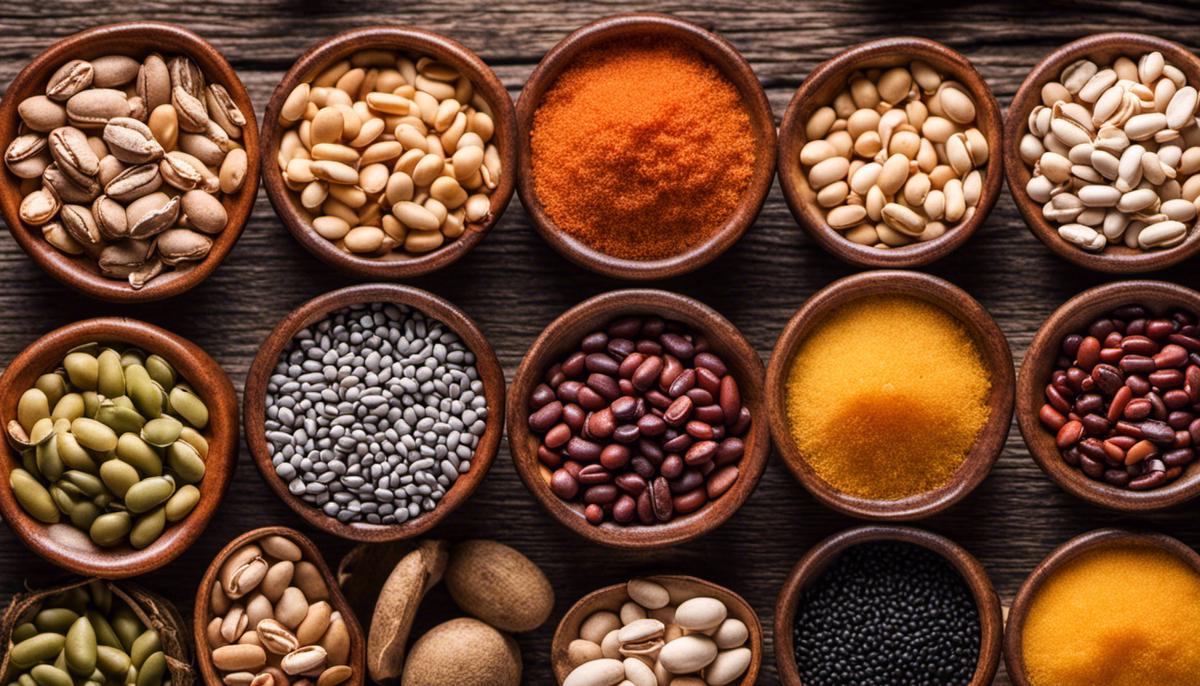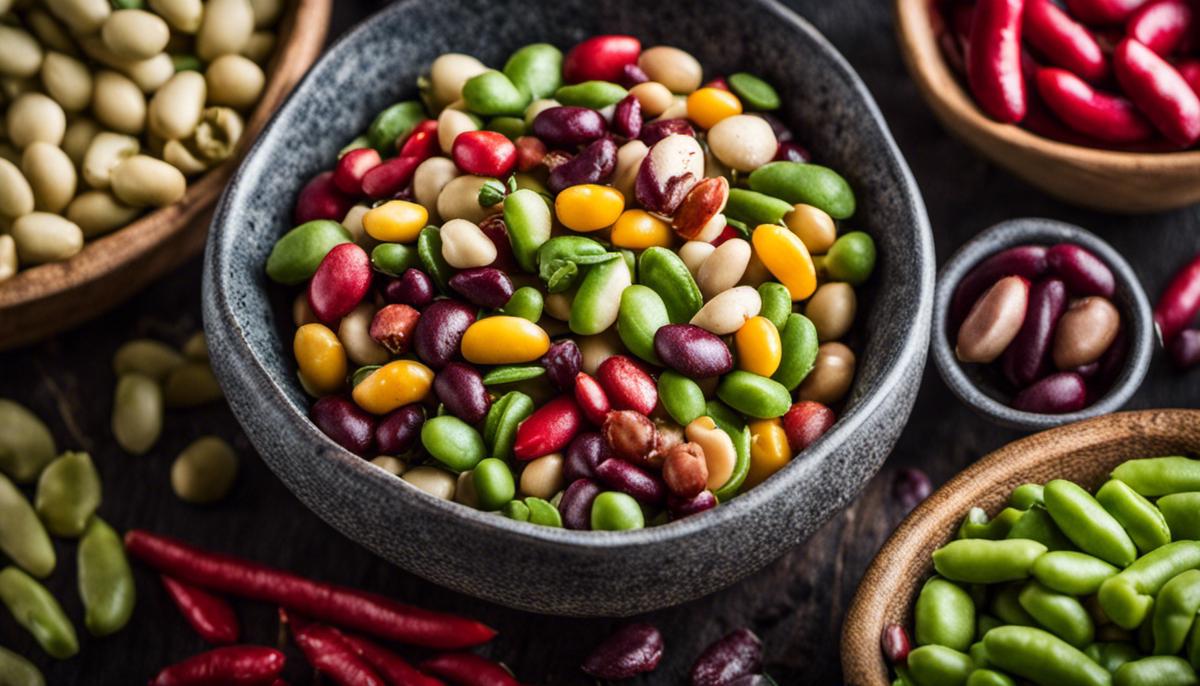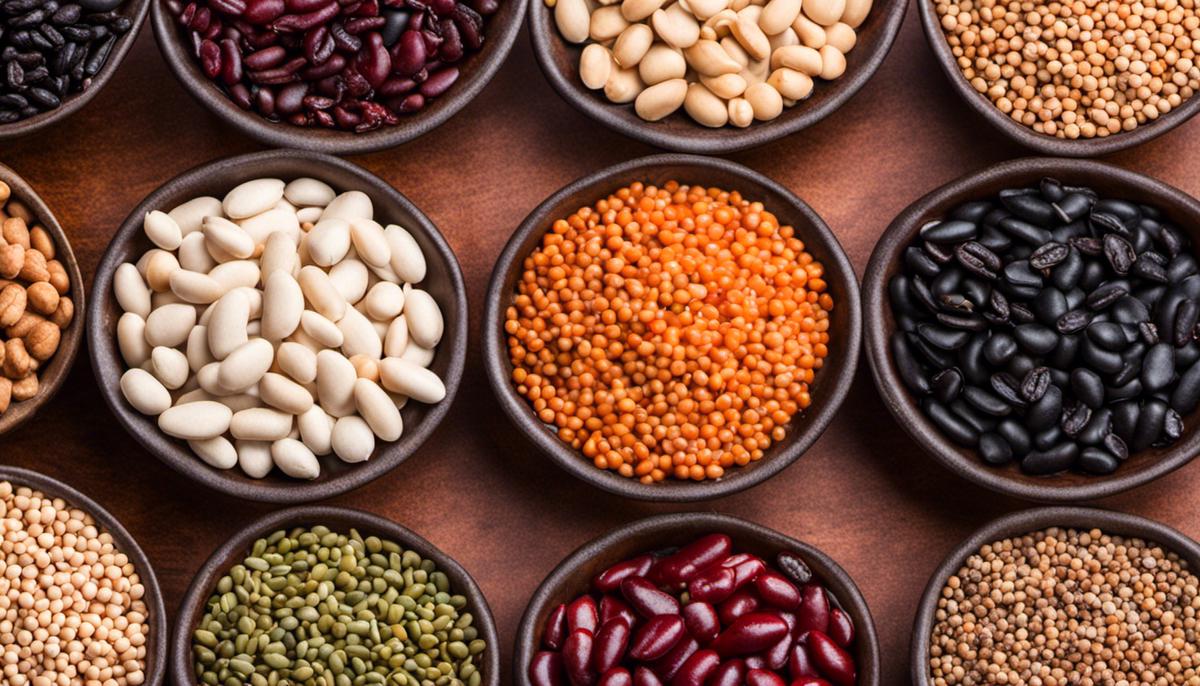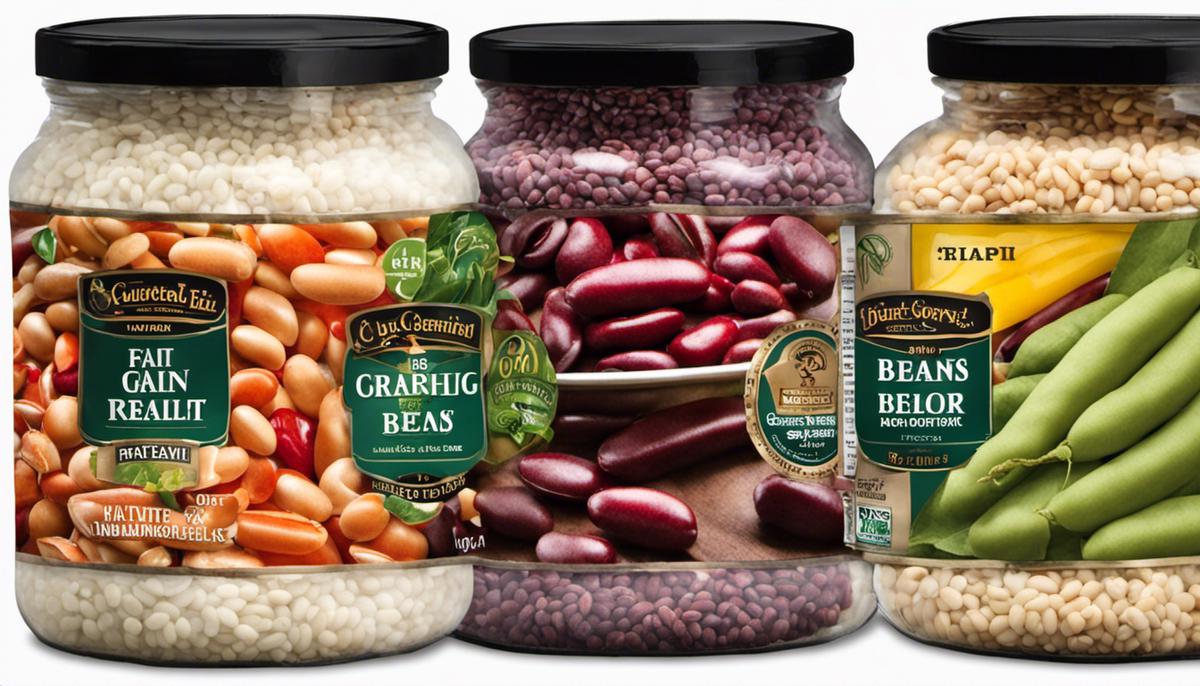Protein is undoubtedly a fundamental component of a healthy diet, providing the building blocks for bodily tissues and serving multiple vital physiological functions. Though often associated with animal products, protein is also prevalently available in plant-based foods, such as beans. Beans are not only a cost-effective dietary staple but also a versatile and potent source of plant-based protein, making them a worthy addition to anyone’s diet. This exploration outlines the significance of protein in beans, delves into a variety of protein-rich beans, draws comparative analysis of bean proteins, and offers guidance on integrating these hearty elements into your daily meals.
Understanding Protein in Beans
Understanding the Importance of Protein
Protein serves as a crucial nutrient in every person’s diet. It’s essential for building and repairing tissues, producing enzymes and hormones, and supporting healthy bones, muscles, cartilage, skin, and blood. As one of the three macronutrients, alongside carbohydrates and fats, protein provides energy to the body and aids in important functions such as immune responses, fluid balance, and transporting nutrients.
Why Beans are a Good Source of Protein
Beans are known as one of the best plant-based sources of protein, offering a tasty, healthy, and economical option. They are made up of amino acids, the building blocks of protein, and provide many of the essential amino acids our bodies can’t produce. Beans also offer the advantage of being low in fat and saturated fat, and high in fiber and other important nutrients such as iron, potassium, and folate.
Protein Content in Common Beans
Different varieties of beans contain varying amounts of protein. One of the highest protein beans is the soybean- one cup of cooked soybeans can provide as much as 29 grams of protein. Other variants of beans that contain high protein content are lentils, with around 18 grams of protein per cup cooked, and black beans, with approximately 15 grams protein per cup cooked. Chickpeas also provide a good protein source offering 15 grams per cup cooked.
Have More Than Just Protein
While beans are high in protein, they also contain other nutrients that contribute to overall health. They are known to be a good source of antioxidants, and certain types of fiber found in beans can help lower cholesterol levels and improve gut health. Moreover, various studies have found that the regular consumption of beans can reduce the risk of several chronic diseases, including heart disease and certain types of cancer.
The Power of Protein in Beans
When trying to optimize one’s health, incorporating high-protein foods like beans into a balanced diet can do wonders. Consuming beans on a regular basis is associated with numerous health benefits, brought on by their impressive protein and nutrient content. This not only emphasizes the role of protein in our diet, but it also provides a guide to high protein beans for those seeking to enhance their protein consumption.

Types of Protein-rich Beans
Discovering the Power of Black Beans
Amongst the many choices we have, black beans stand out as a popular and powerful source of protein, boasting a robust 15.2 grams per cup. Their high fiber content promotes healthy digestion and their anthocyanin antioxidants contribute positively to cardiovascular health. It’s worth noting that combining any type of beans with a grain results in a ‘complete protein’, which provides all nine essential amino acids our bodies need but can’t produce on their own.
Chickpeas (Garbanzo Beans): Nutrient-Dense Legume
Chickpeas, also known as garbanzo beans, hold 14.5 grams of protein per cooked cup. These versatile legumes are filled with fiber and important minerals like iron, magnesium, and potassium, vital for heart, nerve, and muscle function.
Lentils: Fast-Cooking Protein Powerhouses
While they are technically a type of pulse, lentils are worth mentioning for their 17.9 grams of protein per cup. They are also quick to cook and provide excellent sources of iron, making them great for vegans, vegetarians, or anyone needing a healthy, protein-filled meal.
Adzuki Beans: The Less Known Protein Source
Less known in the Western diet, Adzuki beans offer 17.3 grams of protein in every cooked cup. They’re well-rounded nutritionally, offering potassium, iron, magnesium and fiber. They are a staple in Asian cooking and can be utilized in sweet or savory dishes.
Soybeans: A Complete Protein Source
Soybeans are a standout with 28.6 grams of protein per cooked cup, more than any other variety. They are also a ‘complete protein’, providing all the essential amino acids. They’re the foundation of many vegan and vegetarian-friendly foods including tofu, tempeh, and edamame.
Kidney Beans: High Protein and Heart Healthy
Kidney beans deliver 15.3 grams of protein per cup and are a rich source of fiber. These hearty beans are high in polyphenols, a type of antioxidant which may assist in reducing inflammation and heart disease risk.
Pinto Beans: Protein Plus Antioxidants
Pinto beans, offering 15.4 grams of protein per cup, are an excellent choice for a protein-filled meal. The orange color of these beans signifies they are high in antioxidants, helping in neutralizing harmful free radicals in the body.
Beans are a powerhouse of nutrition and an excellent source of protein, making them a great alternative to meat for vegans and vegetarians as well as those venturing into a plant-based diet. Affordable and versatile, these legumes are packed with other key nutrients such as fiber, potassium, magnesium, and iron. Furthermore, studies highlight an added advantage of a bean-rich diet – a lower risk of heart disease, type 2 diabetes, and some cancers. For an optimal health benefit, it’s best to pair bean consumption with a balanced diet and regular physical activity.

Comparative Analysis of Bean Proteins
The Protein Champions Among Beans
Beans, with their high protein content and nutrient density, are valued globally as a superior food choice. For instance, black beans deliver 21 grams of protein per 100 grams when dehydrated, making them a popular option for boosting protein intake.
However, the protein crown in the world of beans goes to soybeans, surpassing black beans with an astounding 36.49 grams of protein per 100 grams when mature and raw. According to the USDA National Nutrient Database, this makes soybeans one of the top plant-based protein sources.
Beans Protein: Runner-ups
Following closely behind the soybean and the black bean, the pinto bean contains 21 grams of protein per 100 grams, along with a whopping 15.5 grams of fiber. Like other beans, pinto beans are also a great source of iron and potassium.
Lentils, although technically a type of pulse and not a bean, deserve mention owing to their protein content, boasting around 26 grams of protein per 100 grams. These legumes are rich in folate, iron, and fiber and can help support heart health due to their high fiber content.
Protein-Packed Beans: The Underdogs
White beans, including navy beans and great northern beans, offer nearly 20 grams of protein per 100 grams (cooked), making them a reliable protein resource. These beans also offer substantial amounts of fiber and iron, and research suggests that they might help control blood sugar, making them a great choice for individuals with diabetes.
Chickpeas, also known as garbanzo beans, have around 19 grams of protein per 100 grams (cooked). Chickpeas are not just a good protein source but also offer plenty of fiber, vitamins, and minerals, particularly folate, iron, and phosphorus.
Finally, kidney beans contain around 17 grams of protein per 100 grams (cooked). Kidney beans have a mildly sweet flavor and are high in various minerals, fiber, and B vitamins. They’re beneficial in managing blood sugar, so they’re an exceptional choice for individuals with type 2 diabetes.
Beans are a significant source of protein, especially for those who follow a plant-based diet. With a variety of beans providing different nutritional profiles, they can be tailored to individual health outcomes, dietary needs, and personal preferences. In essence, beans serve as a principal provider of plant-based protein, proving essential in creating a balanced and nutritious diet.

Including High-Protein Beans in Your Diet
Exploring High-Protein Beans: Nutritional Giants in Your Kitchen
Bearing one of the highest contents of plant-based protein, incorporating beans into your diet can present abundant health advantages, notably for vegetarians and vegans. It’s worth noting that there are a variety of beans, each boasting a unique protein content.
Take lentils, for instance, which brim with nearly 18 grams of protein per cooked cup, along with a strong presence of fiber and complex carbohydrates. Opt for tofu, a product of soybeans, and you’ll find around 10 grams of protein per half-cup. Other beans abundant in protein include chickpeas, also known as garbanzo beans, with 15 grams per cooked cup, and black beans, yielding an equal 15 grams per serving.
Incorporating High-Protein Beans in Your Meals
Adding beans to your diet doesn’t have to be a culinary challenge. Here are some easy methods to get you started:
Chickpeas make a great addition to salads and wraps or can be roasted for a crunchy snack. Try pureeing them with olive oil, garlic, and tahini to make a healthy and protein-rich hummus dip.
Black beans can be added to soups, stews, salads, or tacos. They also make a nutritious addition to scrambled eggs in the morning.
Lentils are highly versatile – they can be added to salads, paired with rice, or used to make a hearty lentil soup.
Tofu is typically used as a meat substitute in a variety of dishes. It can be grilled, stir-fried, or blended into smoothies.
Meal Planning with High-Protein Beans
Meal planning is a great way to ensure that you’re consistently incorporating high-protein beans into your diet. Here are few suggestions:
For breakfast, consider a tofu scramble with vegetables or a smoothie made with silken tofu.
For lunch, opt for a lentil salad or chickpea wrap.
For dinner, consider a stew or casserole that integrates black beans or any other bean of your choice.
Remember, canned beans can be a great time saver in preparing these meals. Just rinse them thoroughly before use to remove any excess sodium.
Beans for Health: High Protein and More
In addition to protein, beans also provide plenty of fiber, which can support digestive health. They’re also a good source of a variety of vitamins and minerals, including iron, magnesium, and folate. The regular consumption of beans can help manage weight, control blood sugar, and lower cholesterol. So next time you plan your meal, remember to include these protein-packed legumes!

Understanding and truly leveraging the power of beans can significantly enhance your nutritional intake. Whether it’s the nourishing black beans, versatile chickpeas, or the less well-known adzuki beans, the world of beans offers a myriad of options for protein enrichment. The remarkable protein content of these humble legumes not only aids in the maintenance and growth of body tissues but also supports overall health and wellness. Thus, embracing beans and including them in your diet can pave the way for a healthier lifestyle. Here’s to harnessing the benefits of beans – a modest food staple holding profound health potentials.
